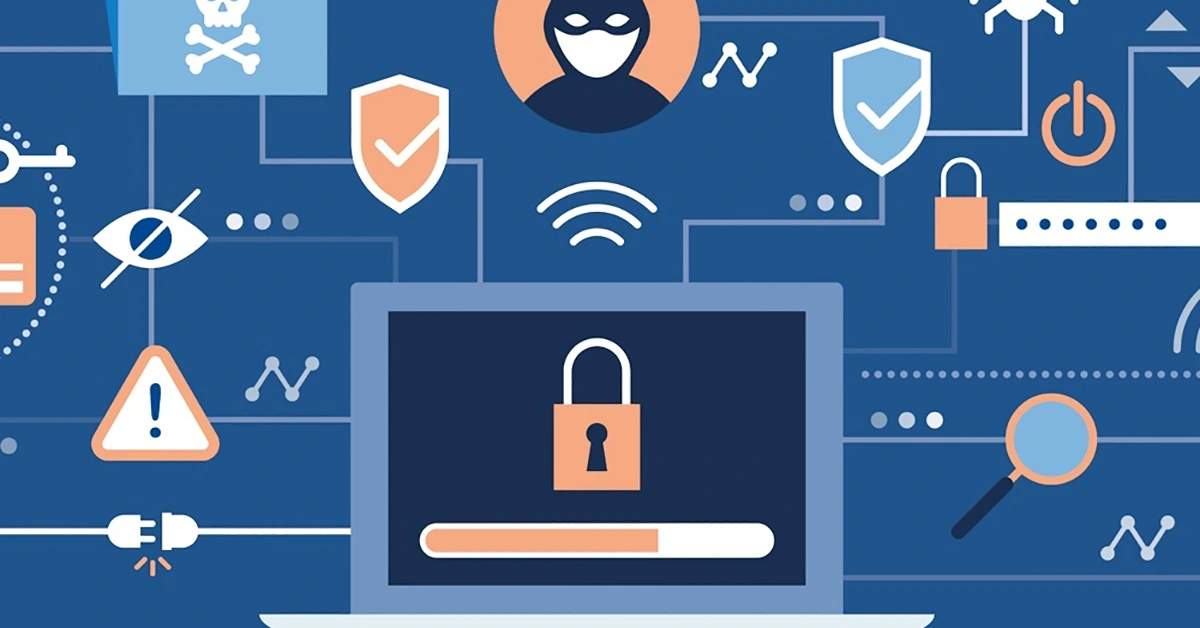
In today’s interconnected digital world, terms like “Dark Web” may sound like they’ve been plucked straight out of a spy novel. However, for small business owners, understanding what the Dark Web is and its potential implications is critical to safeguard valuable information. In this brief article, I define the Dark Web, describes its origin, identify its most frequent users, and recommend ways to determine if your business’s data is there.
The “Dark Web” Defined
The Dark Web is a part of the internet that remains hidden from conventional search engines like Google, Bing, or Yahoo. Unlike the “surface web,” which is readily accessible to anyone with an internet connection, the Dark Web requires specific software, tools, and configurations to access.
One of the most well-known tools for this purpose is Tor (The Onion Router). Tor operates by routing a user’s data traffic through a network of volunteer-operated servers, called relays. As data passes through these relays, it gets layered with encryption in a way that’s analogous to the layers of an onion. By the time the data reaches its final destination, tracking the original source or the content within becomes extremely challenging. This method ensures a high level of anonymity for its users.
Within this cloaked portion of the internet, websites operate with “.onion” domains. These sites can range from forums and chat rooms to marketplaces and information hubs. Due to the inherent privacy and anonymity of the Dark Web, it becomes a hub for a myriad of activities. While it offers a haven for whistleblowers, activists, and those living under oppressive regimes to communicate and share without fear of retribution, it’s also a hotspot for illegal activities, including drug trafficking, illegal arms sales, counterfeit currency production, and more. (1)
In essence, the Dark Web is a double-edged sword: it’s a beacon of privacy and freedom in the digital age, but also a space where the clandestine thrives.
History of the Dark Web
The Dark Web has long been a topic of intrigue and concern. Its roots trace back to the U.S. government in the 1990s. Recognizing the need for secure, anonymous communication channels, particularly for intelligence operations, the U.S. Naval Research Laboratory actually initiated the “The Onion Routing” project, or Tor. This project aimed to create a method of sending and receiving messages without revealing the sender, recipient, or content. In essence, it would “bounce” the internet traffic around various relay points, making tracking virtually impossible.
By the early 2000s, the code behind Tor was released to the public. This move laid the foundation for what we now know as the Dark Web. As Tor’s network grew, so did websites that operated solely within this anonymous space, distinguished by “.onion” domains. Although the Dark Web’s establishment was rooted in protecting communication, it quickly became a hub for both legitimate anonymous activity and illicit transactions, from whistleblowing to illegal trade. (2)
The genesis of the Dark Web, therefore, is a blend of well-intended governmental security measures and the internet’s inherent push towards unrestricted freedom. As it continues to evolve, understanding its origins can help in navigating its implications today.
Who Uses the Dark Web
The Dark Web, with its cloak of near-impenetrable anonymity, attracts a wide spectrum of users. Some are driven by noble intentions, while others have more nefarious motives.
Whistleblowers and Activists
The Dark Web provides a safe haven for whistleblowers and activists, especially those working under authoritarian governments or in situations where their security is at risk. The platform ensures they can share classified or sensitive information without fear of reprisal. Edward Snowden’s revelations about the NSA are a prime example of how such platforms can be used for whistleblowing. (3)
Journalists
In oppressive regimes, journalists often resort to the Dark Web to bypass censorship and state-sponsored surveillance. Platforms like SecureDrop enable journalists to communicate with sources and receive documents securely. (4)
Criminals
Due to its anonymous nature, the Dark Web is also a hotspot for criminal activity. From illicit drug markets to black-market firearms sales, there’s a dark underbelly that law enforcement agencies worldwide are continuously trying to combat. As a small business, cybercriminals remain the biggest threat. In fact, a ransomware attack attempts to double-dip. First, they steal your data and hold it for a ransom. Second, even if paid, cybercriminals sell copies of the data to the Dark Web, where they may be paid twice for the same theft.
Privacy Enthusiasts
Not everyone on the Dark Web has a specific purpose. Some individuals are privacy enthusiasts who dislike the idea of being monitored and tracked by corporations or governments, leading them to explore the internet anonymously. (5)
Detecting Your Business Data on the Dark Web
The thought of your business data being available on the Dark Web is deeply unsettling. Proactively ensuring that your company’s information hasn’t been compromised is vital for maintaining trust and security. Here’s how to gauge if your data might be lurking in the internet’s shadowy corners:
Dark Web Monitoring Services
Numerous service providers – including Dynamic Edge – offer specialized Dark Web monitoring services. These services scan the Dark Web for mentions of your company’s data or related keywords, alerting you if they find a match. Using a reputable service like this can provide peace of mind.
Data Breach Databases
Websites like “Have I Been Pwned?” allow users to check whether their email addresses or company domains have been compromised in known data breaches. (6)
Stay Informed
Regularly follow cybersecurity news sources. High-profile data breaches are often reported, giving businesses a heads-up if they might be affected.
Conclusion
While the Dark Web can seem like a distant, murky realm, its implications for small business owners are very real. Approach the topic with caution. If you suspect that your data is on the Dark Web, immediately consult with a cybersecurity firm – like Dynamic Edge – to gauge the extent of the breach and craft a response strategy. Time is of the essence, so make certain that your IT team is working proactively to monitor your online health. By remaining vigilant about the Dark Web, you can protect your business, employees, and valuable data.
Dynamic Edge Can Help
Since 1999, Dynamic Edge has helped hundreds of small and mid-sized businesses maximize the return on their technology investment. Contact us today for a free network assessment, so that we may help you implement cost-effective security solutions to keep your organization and its clients safe and productive. Our Help Desk features friendly, experienced engineers who answer calls live and solve more than 70% of issues on the first call.


